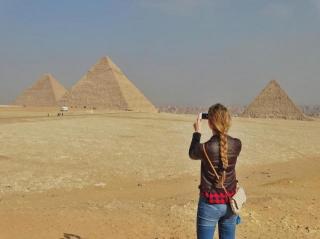@tati_ana_3
« It’s such a pity that the level of tourism in Cairo is now nearly zero due to the "unstable political situation," which in my opinion doesn’t really affect the safety of tourists, but rather concerns the local residents and their standards of living. This is an amazing country with a rich history and centuries-old traditions. And even though it may be going through one of the tougher periods in its history, it’s important not to associate it only with Sharm El Sheikh and Hurghada. »

tati_ana_3 ©
